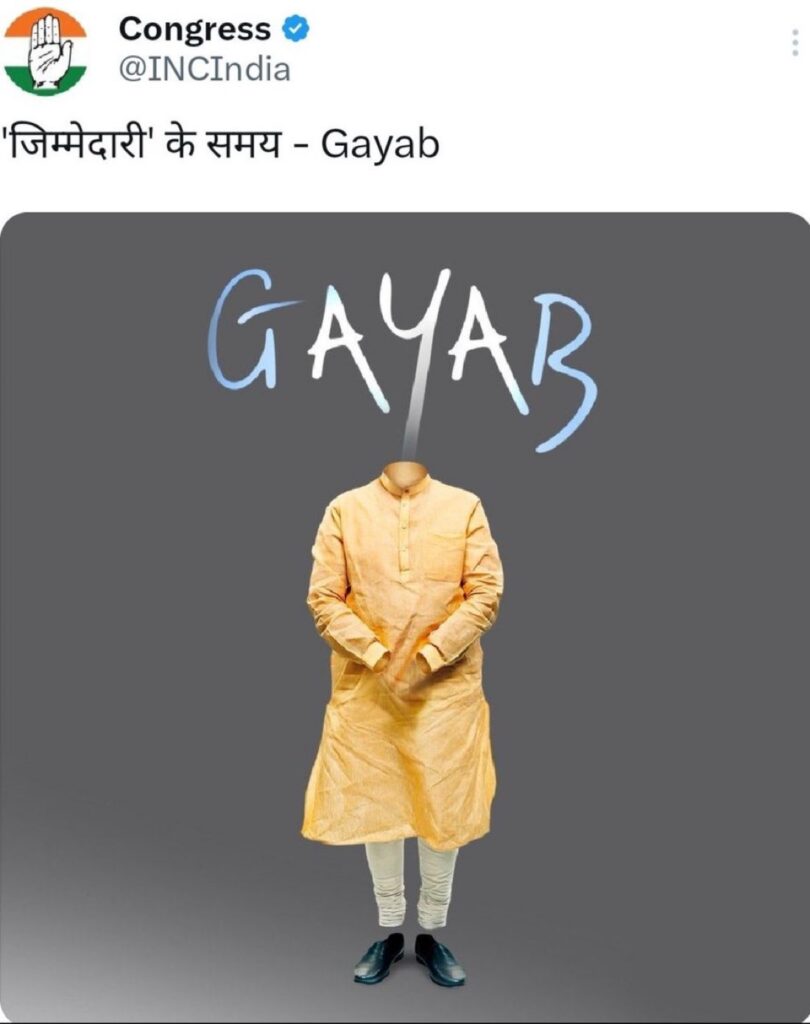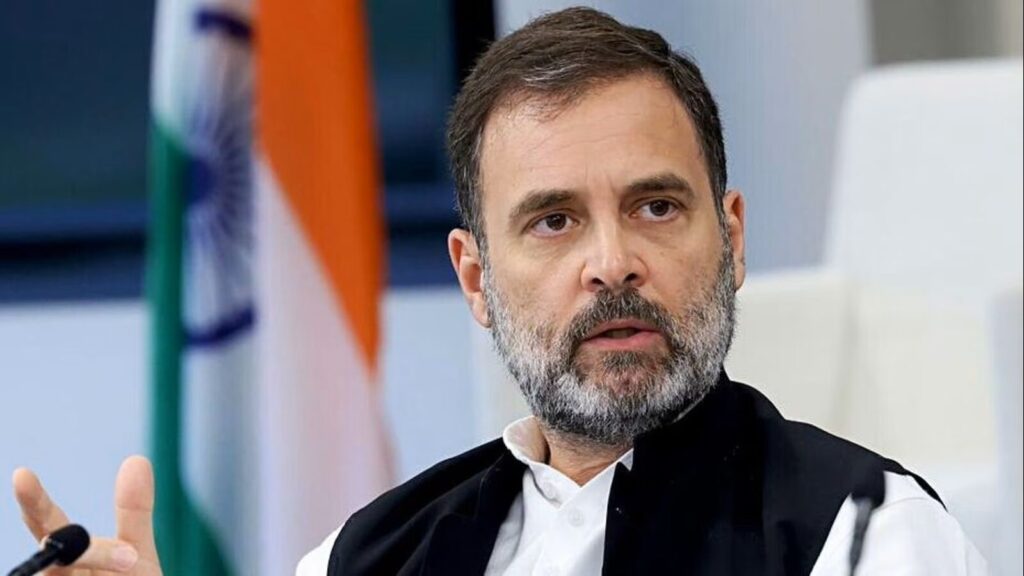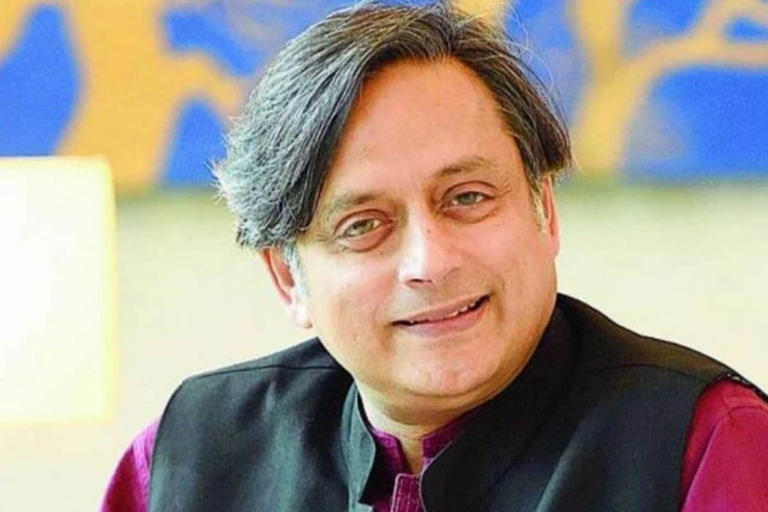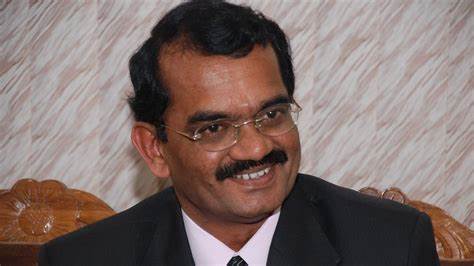Congress’s ‘Gayab’ Tweet During Pahalgam Attack Sparks National Outrage
The Indian National Congress faces intense scrutiny over its response, internal discord, and a controversial social media post. Following the devastating Pahalgam terror attack on April 22, 2025, which claimed 26 lives, The attack, attributed to The Resistance Front (TRF), an offshoot of Lashkar-e-Taiba, has reignited India-Pakistan tensions and exposed political fault lines. From initial condemnation to a now-deleted ‘Gayab’ tweet, Congress’s handling of the crisis has drawn criticism from the Bharatiya Janata Party (BJP) and the public.
Congress’s Initial Stand and Public Condemnation
In the wake of the Pahalgam attack, Congress leaders Rahul Gandhi and Mallikarjun Kharge condemned the violence and called for unity. At an all-party meeting on April 24, 2025, they pledged support for the central government’s actions against terrorism.
My letter to PM Modi requesting a special session of both houses of Parliament to be convened at the earliest.
— Rahul Gandhi (@RahulGandhi) April 29, 2025
At this critical time, India must show that we always stand together against terrorism. pic.twitter.com/7AIXGqBqTl
Gandhi visited Srinagar, meeting victims and Jammu and Kashmir Chief Minister Omar Abdullah, urging citizens to stand united against divisive terror tactics. The Congress Working Committee (CWC) passed a resolution labeling the attack a “direct assault” on India’s values, demanding a probe into intelligence failures. Kharge and Gandhi also wrote to Prime Minister Narendra Modi, requesting a special Parliament session to demonstrate national resolve, emphasizing solidarity over partisan politics.
Allegations of Intelligence Lapse
Karnataka Chief Minister Siddaramaiah and Home Minister Dr. G. Parameshwara attributed the attack to intelligence lapses by central agencies. Siddaramaiah argued that tightened security could prevent such incidents without resorting to war with Pakistan. He later clarified that war should be a last resort, accusing the media of distorting his remarks. Parameshwara echoed this, stressing the need for stronger border security to curb terrorist infiltration. These statements sparked controversy, with the BJP alleging that Congress was downplaying Pakistan’s role and undermining national unity. The CWC resolution also called for a comprehensive analysis of security lapses, noting the attack occurred in a Union Territory under central oversight.
The ‘Gayab’ Tweet Controversy
On April 28, 2025, Congress posted a now-deleted tweet implying Prime Minister Modi was “missing in action” during the crisis, referencing his absence from the all-party meeting. The post, accompanied by a visual, was perceived as a jab at Modi’s leadership, using the term “gayab” (missing). The tweet was reshared by former Pakistani minister Fawad Chaudhry, fueling BJP’s accusations of Congress colluding with Pakistan. Public and political backlash was swift, with critics labeling the post as insensitive and in poor taste amid national mourning. BJP leaders called it “dog-whistle politics,” arguing it distracted from the tragedy and gave Pakistan propaganda material. Congress distanced itself, stating only authorized statements from Kharge, Gandhi, and the CWC reflect its stance.

Congress Damage Control and BJP’s Counteroffensive
Facing backlash, Congress issued a gag order on April 28, 2025, directing leaders to adhere to the party’s official line or refrain from commenting. Jairam Ramesh, Congress’s communications chief, clarified that remarks by leaders like Siddaramaiah, Vijay Wadettiwar, and Mani Shankar Aiyar were personal views, not party policy. Aiyar’s suggestion that the attack stemmed from unresolved Partition issues and Wadettiwar’s questioning of terrorists’ motives further embarrassed the party.
K C Venugopal issued a circular to all Pradesh Congress Committees, MPs, and leaders, instructing them to align with the CWC’s April 24 resolution and avoid unauthorized statements.
All Congress party leaders and functionaries are directed to adhere strictly to the official CWC resolution on the Pahalgam attack passed on April 24, 2025 pic.twitter.com/u0GIc3QhTl
— K C Venugopal (@kcvenugopalmp) April 29, 2025
Rahul Gandhi and Kharge, reportedly upset, sought to curb infighting to project unity.
The BJP seized the opportunity, launching a fierce counteroffensive. Spokesperson Ravi Shankar Prasad accused Congress of lacking control over its leaders, citing statements from Siddaramaiah, Wadettiwar, and others as evidence of a pattern that Pakistan exploited. BJP leaders claimed Congress’s remarks demeaned India, with Pakistani media praising Siddaramaiah’s anti-war stance. They further alleged Congress was shielding Pakistan’s “terror ecosystem,” referencing past incidents like the 26/11 attacks. The BJP’s narrative framed Congress as disunited and soft on terrorism, contrasting it with Modi’s firm resolve.
The Pahalgam terror attack has placed Congress in a precarious position, grappling with internal discord and external criticism. While Rahul Gandhi and Mallikarjun Kharge pushed for unity and accountability, controversial remarks and the ‘Gayab’ tweet controversy undermined their efforts. The BJP’s aggressive counteroffensive has capitalized on Congress’s missteps, portraying it as divided and sympathetic to Pakistan. As India navigates this crisis, Congress must unify its messaging to regain public trust. The demand for a special Parliament session reflects a call for collective action, but political sparring risks overshadowing the tragedy.





















